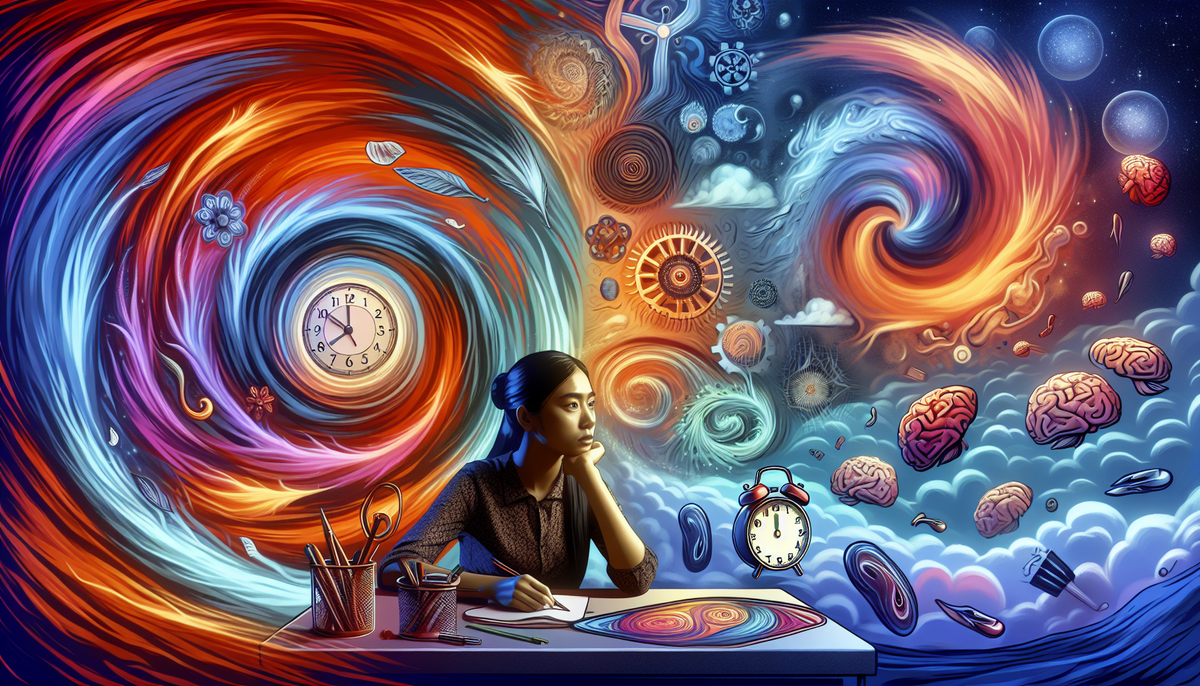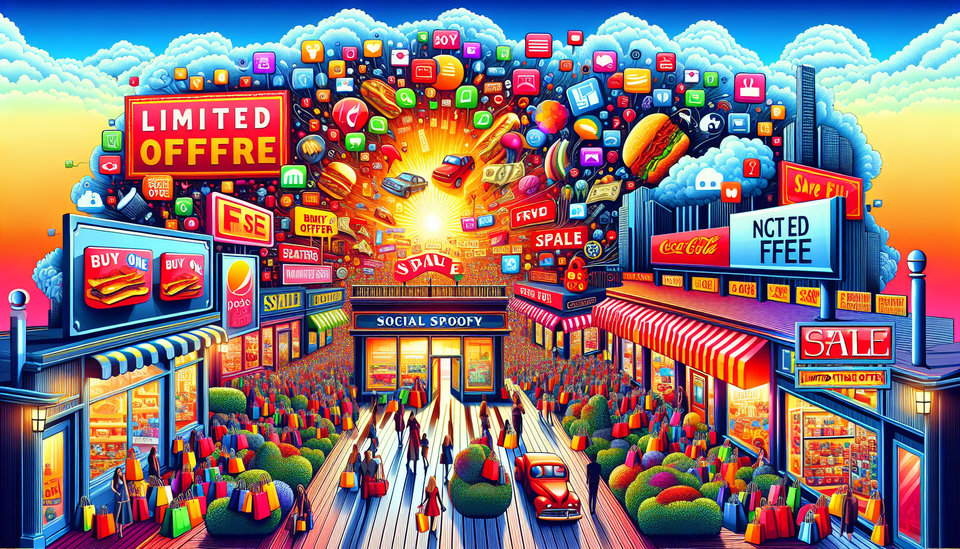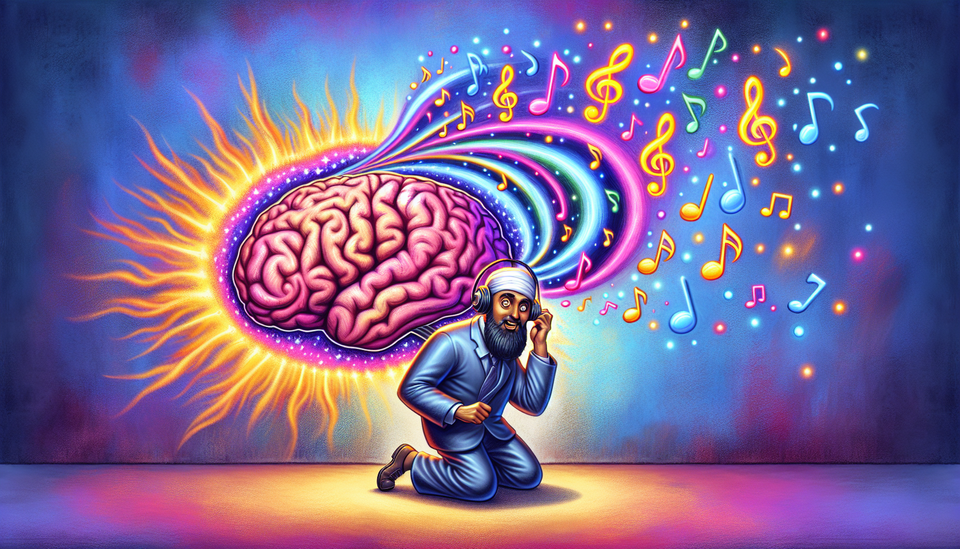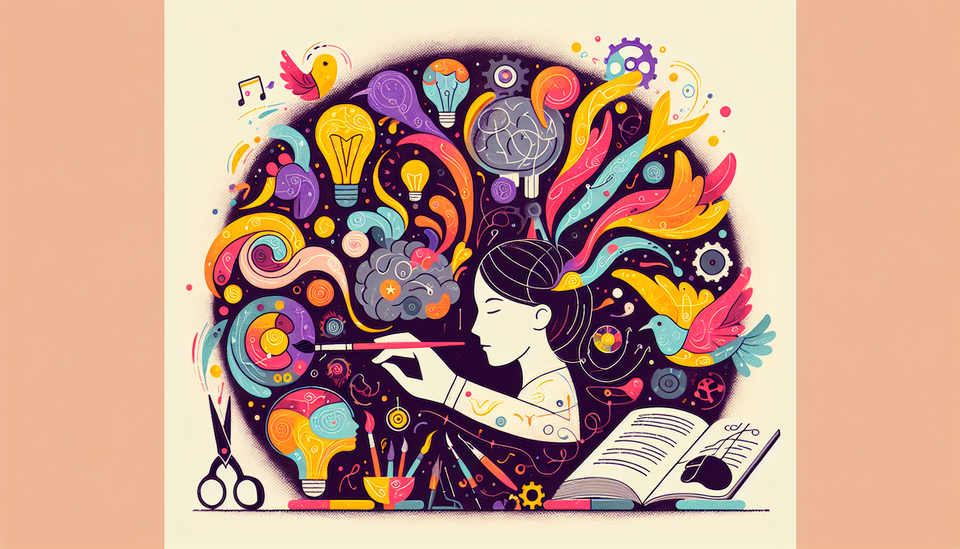Yes, You Can See Time! How Your Brain Perceives Hours and Minutes.
Can you really *see* time? Your brain has its own "rough draft" of it, warping hours and minutes based on what you're doing. Why does school drag but vacations fly? Find out how your brain controls time—and how you might

Can You Really See Time? How Your Brain Perceives Hours and Minutes
Ever notice how some days fly by like zoom and others drag on for what feels like forever? Weird, right? But did you know your brain is actually creating its own version of time… from scratch? Yeah, like a built-in time machine. And no, I’m not joking.
Time is something we all deal with every single day. It tells us when to wake up, when to hit snooze (again), and when to finally go to bed. But here’s the thing: your brain doesn’t process time like the ticking of a clock. It’s way more complicated—and honestly, a little messy. Let’s dive into how your brain really perceives time, and trust me, it’s cooler than you think.
Your Brain’s “Rough Draft” of Time
Okay, so here’s the deal: Your brain doesn’t have a little clock inside it, ticking away like the one on your phone. Instead, it’s more like your brain is constantly making a rough draft of time. It takes in information from the world around you—like how fast things are moving, how much is happening—and uses that to give you a sense of how much time has passed.
Think about it like this: When you’re in class and you’re bored out of your mind, time feels like it’s crawling. But when you’re hanging out with friends or playing video games, hours seem to disappear in a flash. That’s because your brain’s perception of time isn’t set in stone. It’s flexible, and it changes based on what you’re doing and how much your brain is processing.
Fun Fact: Your Brain Has a Stopwatch… Sort Of
Scientists have found that a part of your brain called the striatum acts like an internal stopwatch. But here’s the catch—it’s not super accurate. It doesn’t count seconds perfectly, which is why 5 minutes can feel like 15 when you’re bored, or why an hour can feel like 10 minutes when you’re having fun. It’s like your brain’s trying its best, but sometimes it’s just a little off.
The “Tempo” of Time: Why Stress Slows Everything Down
Ever been in a stressful situation, like taking a big test or getting caught in a scary moment, and felt like time slowed down? That’s not just in your head—well, actually, it is in your head, but you get what I mean. When you’re in a high-pressure situation, your brain goes into overdrive. It starts processing way more information than usual, which makes it feel like time is slowing down.
It’s like your brain is hitting the slo-mo button so you can focus on what’s important. This is why people often say that time “slows down” during emergencies or intense moments. Your brain is trying to help you out by giving you more time to react, even though the actual clock isn’t moving any slower.
Why Time Speeds Up as You Get Older
Here’s a mind-blower: Have you ever noticed how, when you were a kid, time seemed to stretch on forever? Summers felt endless, and waiting for your birthday felt like an eternity. But now that you’re older, years seem to zoom by in the blink of an eye. What’s up with that?
Turns out, your brain’s perception of time shrinks as you get older. When you’re a kid, everything is new—new experiences, new places, new people. Your brain is constantly learning, which makes time feel longer because it’s processing so much. But as you get older, you’ve seen and done a lot of things before, so your brain doesn’t need to work as hard. It’s like your brain is saying, “Eh, we’ve been here before, let’s fast-forward.”
Fun Comparison: New Show vs. Rewatching Your Fave Episode
Think of it like watching a brand-new TV show for the first time versus rewatching your favorite episode. The first time, everything is fresh and exciting, and you’re paying attention to every little detail. But when you rewatch it, you already know what’s going to happen, so it feels like it flies by. That’s kind of how your brain works with time as you get older—less new stuff means time feels like it’s speeding up.
Memory and Time: Why New Experiences Feel Longer
Here’s another fun twist: Your memory plays a huge role in how you perceive time. When you’re doing something new or exciting, your brain creates more memories, which makes time feel longer. But when you’re doing something repetitive, like your daily routine, your brain creates fewer memories, so time feels like it’s flying by.
It’s like your brain is saying, “We’ve seen this before, no need to pay attention,” and it fast-forwards through the boring parts. This is why vacations or new adventures feel longer than your regular work or school week, even if they’re the same number of days.
How Understanding Time Perception Can Help You
So, why does any of this matter? Well, understanding how your brain messes with time perception can actually help you in your daily life. For example, if you’re bored in class or at work and time feels like it’s dragging, just remember—it’s not really taking forever. It’s just your brain playing tricks on you.
And if you’re feeling rushed or like you don’t have enough time, here’s a little tip: Focus on being present in the moment. When you’re fully engaged in what you’re doing, your brain creates more memories, which can make time feel like it’s moving slower. It’s like a little time hack to help you feel more in control of your day.
Next Time You Look at the Clock…
So, the next time you look at a clock and think, “Wow, why does time feel SO weird today?” just remember—it’s not the clock’s fault. Your brain’s been in charge this whole time. And if we can get a grip on how it works, we might just be able to master time itself. Kinda like Doctor Strange… but, you know, without the magic cape.
Final Thought: Can We Really Control Time?
Here’s something to chew on: What if we could train our brains to “stretch” time? Would we be able to control how fast or slow our days actually feel? Scientists are still digging into this one… but just imagine the possibilities!



